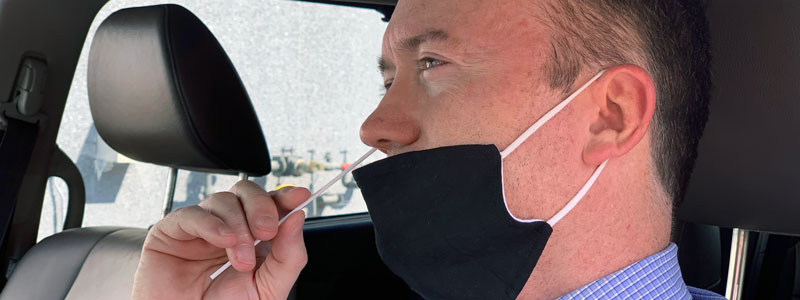If you have symptoms, you should get tested immediately. If you were exposed to COVID-19 and don’t have symptoms, wait at least five full days after your exposure to get tested. If you take a test too early, your results may not be accurate.
Consider taking a test before you have contact with someone who is at higher risk for severe COVID-19, especially if you are in an area experiencing medium to high COVID-19 Hospital Admission Level.
For more information about testing go to www.cdc.gov/coronavirus/2019-ncov/symptoms-testing/testing.html.


